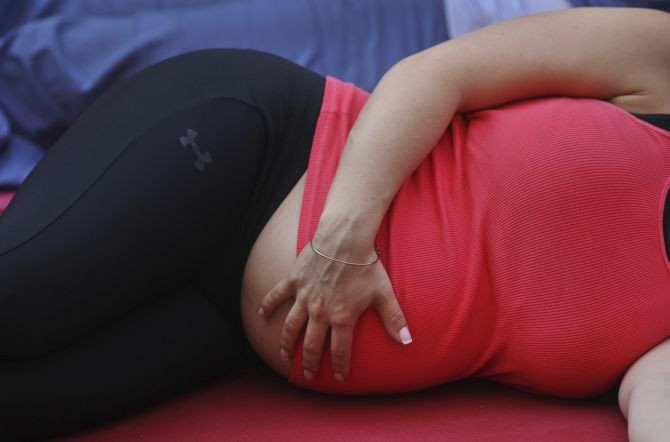Air Pollution Increases Preeclampsia Risk in Pregnant Women

Air pollution can significantly raise the risk of preeclampsia in pregnant women, reports a new study.
Preeclampsia is a condition where a pregnant woman develops high blood pressure and has more protein in the urine during the last stages of pregnancy. The condition affects placenta and can affect the mother's kidney, liver and brain. Risk factors for preeclampsia include age, diabetes, kidney disease, high blood pressure and obesity.
The present study included medical records of more than 234,000 births in Perth, Western Australia. Traffic related air-pollution was assessed by measuring levels of nitrogen dioxide near the homes of the pregnant women.
Researchers compared levels of traffic pollution and the pregnancies. They found that women who lived in areas of high air-pollution had 12 percent higher risk of developing preeclampsia than other women. Researchers came to this conclusion after accounting for other risk factors for preeclampsia like diabetes, smoking and age.
When the researchers analyzed air pollution exposure at each stage of pregnancies, they found a 30 percent higher risk of preeclampsia in women exposed to air pollution in the third trimester.
"Modest increases in exposure were associated with a 30 per cent increase in risk - and more-so among women with other major risk factors for preeclampsia," says lead author Gavin Pereira. Pereira conducted the study at the Telethon Institute for Child Health Research in Western Australia, reports CBC News.
Women with diabetes have a high risk of developing preeclampsia. In the present study, researchers found that these women's risk increases substantially when they are exposed to air pollution. Air pollution increased risk of developing preeclampsia by 326 percent in women with gestational diabetes.
"Women with gestational diabetes have a higher risk of developing preeclampsia as their pregnancy progresses. So, again, there is suggestion that traffic-related pollution seems to promote or precipitate preeclampsia in already susceptible pregnancies," Pereira said, reports CBC News.
In the study group, 67 percent women who had gestational diabetes developed preeclampsia.
The study was published in the Journal of Epidemiology and Community Health.



























